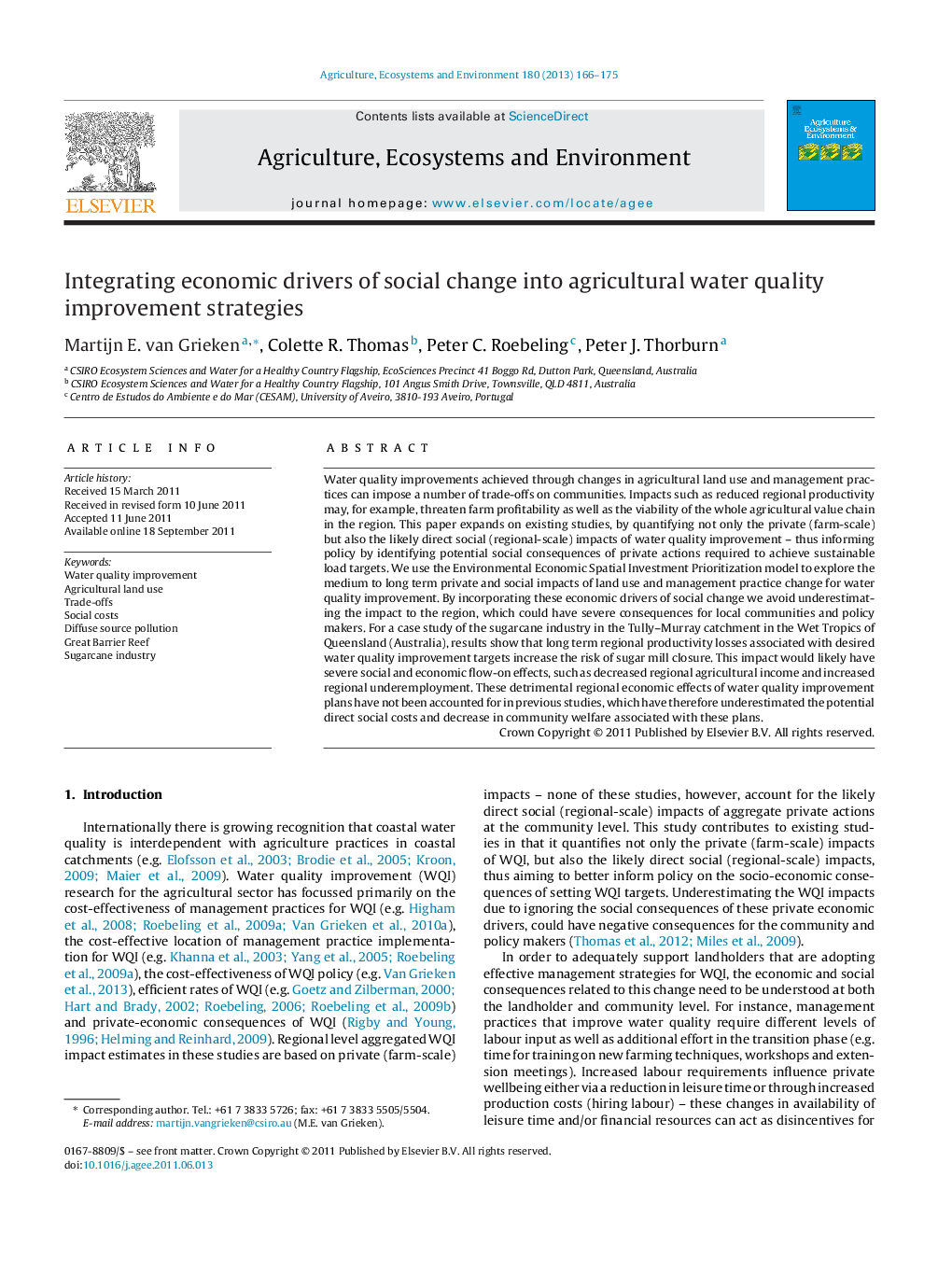| Article ID | Journal | Published Year | Pages | File Type |
|---|---|---|---|---|
| 2414105 | Agriculture, Ecosystems & Environment | 2013 | 10 Pages |
Water quality improvements achieved through changes in agricultural land use and management practices can impose a number of trade-offs on communities. Impacts such as reduced regional productivity may, for example, threaten farm profitability as well as the viability of the whole agricultural value chain in the region. This paper expands on existing studies, by quantifying not only the private (farm-scale) but also the likely direct social (regional-scale) impacts of water quality improvement – thus informing policy by identifying potential social consequences of private actions required to achieve sustainable load targets. We use the Environmental Economic Spatial Investment Prioritization model to explore the medium to long term private and social impacts of land use and management practice change for water quality improvement. By incorporating these economic drivers of social change we avoid underestimating the impact to the region, which could have severe consequences for local communities and policy makers. For a case study of the sugarcane industry in the Tully–Murray catchment in the Wet Tropics of Queensland (Australia), results show that long term regional productivity losses associated with desired water quality improvement targets increase the risk of sugar mill closure. This impact would likely have severe social and economic flow-on effects, such as decreased regional agricultural income and increased regional underemployment. These detrimental regional economic effects of water quality improvement plans have not been accounted for in previous studies, which have therefore underestimated the potential direct social costs and decrease in community welfare associated with these plans.
► Water quality improvements through agricultural land use and management practice change imposes trade-offs on communities. ► We use the EESIP model to explore private and social impacts of land use and management practice change for water quality improvement. ► Long term regional productivity losses associated with water quality improvement targets increase the risk of sugar mill closure, with severe social and economic flow-on effects. ► Regional economic effects of water quality improvement plans have underestimated potential direct social costs and decrease in community welfare associated with these plans.
